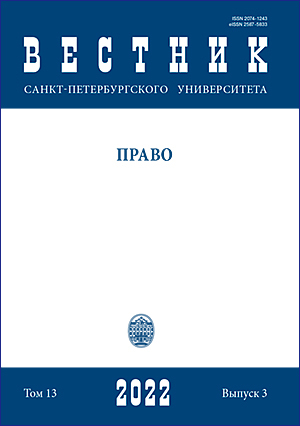International cooperation in the fight against cyberpression in the context of response to new challenges and threats
DOI:
https://doi.org/10.21638/spbu14.2022.306Abstract
This article explores criminal procedure and other organizational and legal aspects of international cooperation between states in the fight against cybercrime in the face of new challenges and threats. The aim is to identify and consider formal and informal measures of international cooperation in response to transnational cybercrime. Through legal analysis, we demonstrate that such crimes, as a rule, have an international character, as they have negative consequences on the territory of other sovereign countries. The author analyzes various forms of international cooperation in the fight against crime, which include extradition (extradition), legal assistance in criminal matters, transfer of criminal prosecution (judicial proceedings), as well as informal cooperation between law enforcement agencies (international police cooperation), in particular within the framework of US law called “СLOUD Act”. As an empirical basis for the study, materials of Russian operational and investigative practice for 2018–2019, as well as decisions of courts of foreign states, were used. However, the majority of law enforcement agencies deliberately or without intent resort to the practice of obtaining evidence on cybercrimes that are physically located on the territory of another country, independently, without obtaining the consent of this state. This happens through a remote connection in real time to the subscriber device of a criminally prosecuted person or its withdrawal from a victim or witness located on the territory of the state by law enforcement agencies that conduct proceedings on a cybercrime case with subsequent inspection to find information relevant to the case, as well as through the use of other legal methods.
Keywords:
cybercrime, international cooperation, jurisdiction, electronic information, service provider
Downloads
References
Downloads
Published
How to Cite
Issue
Section
License
Articles of "Vestnik of Saint Petersburg University. Law" are open access distributed under the terms of the License Agreement with Saint Petersburg State University, which permits to the authors unrestricted distribution and self-archiving free of charge.






